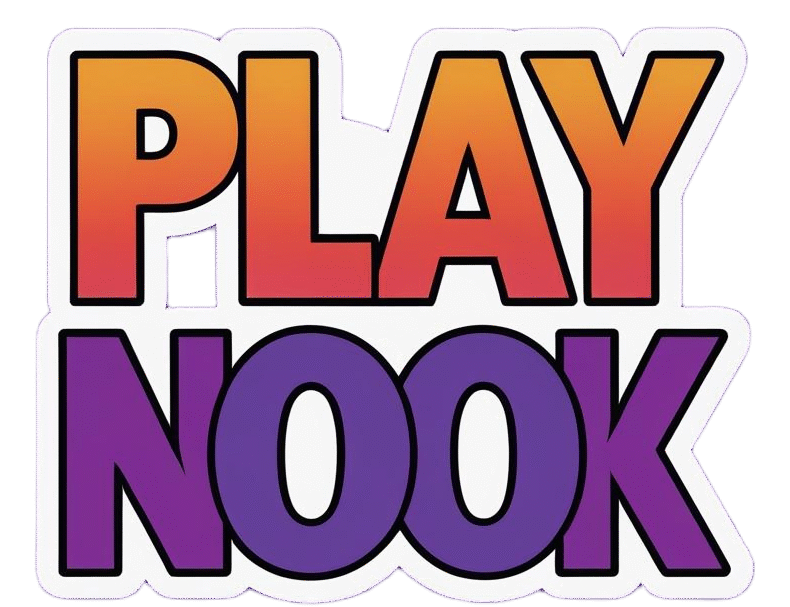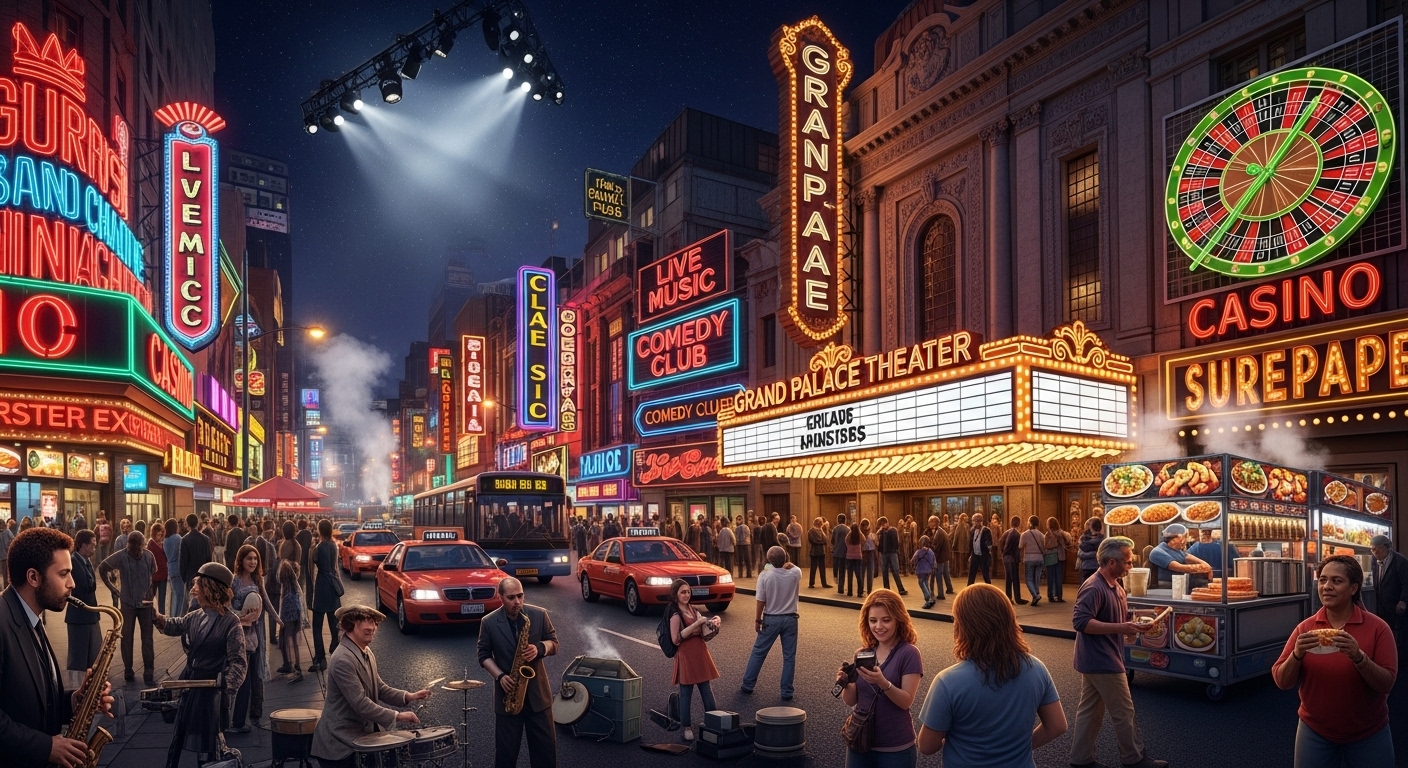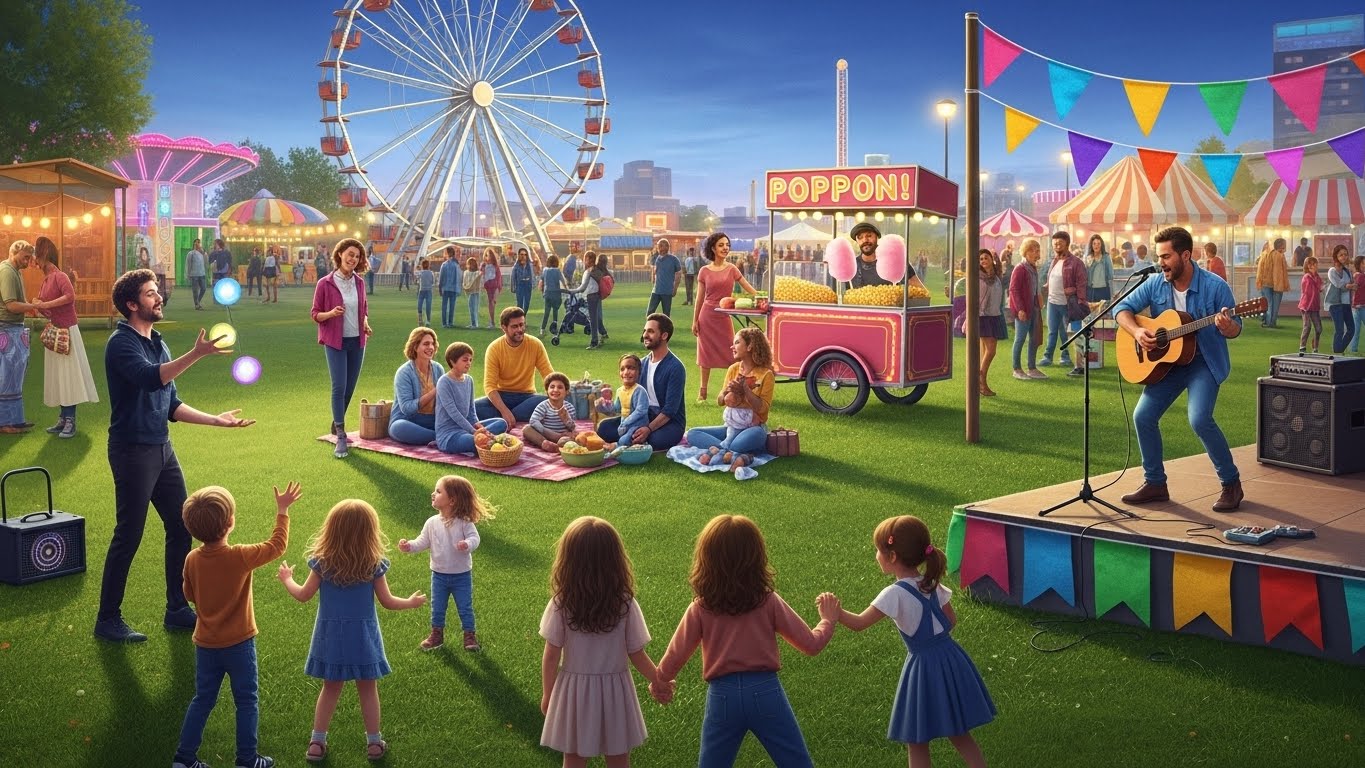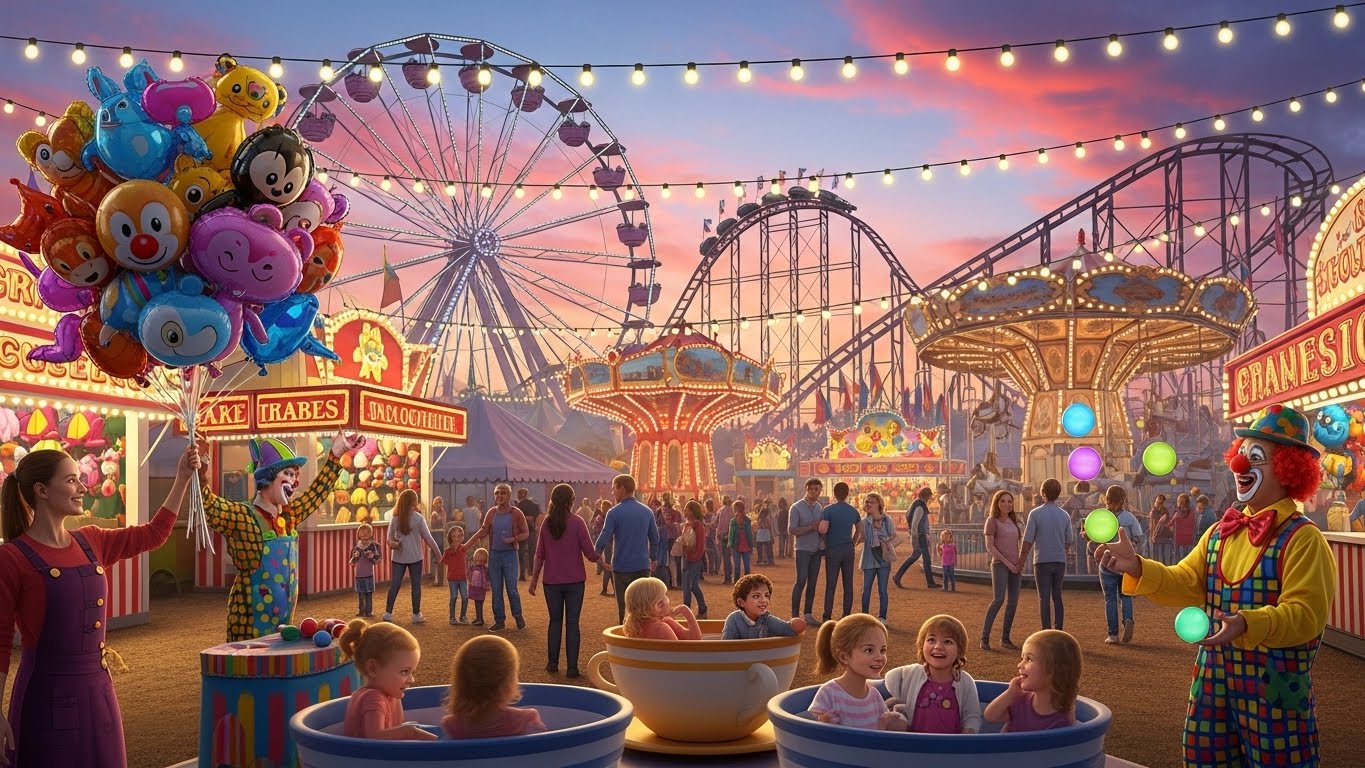Entertainment has always been a cornerstone of human culture, evolving with society’s changing values, technological innovations, and social structures. From storytelling around campfires to the digital experiences we engage with today, entertainment has always served as a mirror to our collective imagination and a way to escape the routine of everyday life. In the 21st century, however, the landscape of entertainment has shifted dramatically, largely due to the rise of digital technology. Streaming services, social media, virtual reality, and interactive platforms are redefining how we consume, interact with, and produce entertainment. In this post, we will explore how entertainment is evolving in the digital age, and what these changes mean for the future of leisure.
The Shift from Physical to Digital Entertainment
Not too long ago, entertainment was defined by tangible experiences. You would buy a ticket to the cinema, purchase a CD or vinyl to listen to your favorite music, or rent a VHS tape from a video store to enjoy a movie at home. These physical mediums dominated the entertainment industry for decades. However, with the advent of the internet, broadband connections, and portable devices, entertainment moved into the digital realm.
Streaming platforms like Netflix, Spotify, and YouTube revolutionized the way people consume movies, music, and videos. No longer bound by the need to own physical copies of content, users could access a vast library of media at their fingertips. These platforms offered not only convenience but also customization, allowing viewers and listeners to explore vast catalogs of content tailored to their personal tastes. Binge-watching entire seasons of shows, once unthinkable, has now become a global pastime, and the concept of “on-demand” entertainment has completely reshaped how we spend our free time.
The Rise of Interactive Entertainment
As technology continues to advance, we are seeing the rise of entertainment that is more immersive and interactive. Video games, once considered a niche hobby, have now become a dominant force in the entertainment industry. The gaming industry is expected to surpass $200 billion in value by 2025, surpassing even the film and music industries. But what makes video games so compelling is the active participation required from the player. Unlike passive forms of entertainment like watching TV or movies, video games place the audience in the driver’s seat, allowing them to influence the story, outcomes, and dynamics of the game world.
Esports, the competitive side of gaming, has further elevated the medium into a global spectacle. With major tournaments drawing millions of viewers and offering multi-million-dollar prize pools, competitive gaming has transformed into a legitimate form of professional sport. The level of skill, strategy, and teamwork required in esports is akin to that of traditional athletic sports, but with the added complexity of virtual environments and digital tools.
Moreover, virtual reality (VR) and augmented reality (AR) are taking interactivity to the next level. VR, in particular, offers players a fully immersive experience that makes them feel as if they are truly inside the game. From exploring fantastical worlds in The Elder Scrolls V: Skyrim VR to attending virtual concerts in VR platforms like VeeR VR, the possibilities for entertainment are boundless. As VR technology continues to improve, it could become the next major platform for entertainment, offering experiences that blend the digital and physical worlds in ways previously only imagined in science fiction.
The Role of Social Media in Shaping Entertainment
While traditional forms of entertainment like movies and television still play a significant role in our leisure time, social media has become an indispensable source of entertainment in its own right. Platforms such as Instagram, TikTok, YouTube, and Twitter have changed the way we consume and engage with content. No longer do we need to rely on Hollywood or major production companies to entertain us. Anyone with a smartphone can become a content creator and share their talents, humor, and ideas with a global audience.
The rise of influencers—individuals who build large followings on social media—has also transformed the entertainment industry. Influencers have become celebrities in their own right, offering a new model of entertainment where fans feel a more personal connection with their idols. Whether it’s through sponsored posts, live streams, or storytelling, influencers are shaping trends, influencing public opinion, and driving engagement in ways traditional celebrities never could.
Moreover, social media platforms have made entertainment more interactive than ever before. Viewers can engage with creators in real time through comments, live chats, and donations. TikTok, for example, has turned viral challenges and trends into forms of interactive entertainment, where users can participate in the creation of content as much as they consume it. This democratization of entertainment has allowed people from all walks of life to become creators, leading to a diversity of voices and perspectives that were previously excluded from mainstream media.
Personalized and On-Demand Entertainment
Another defining feature of modern entertainment is the shift toward personalization. With vast amounts of content available on streaming platforms, recommendations and algorithms play an essential role in guiding viewers to content they might enjoy. Netflix, for example, tailors its suggestions based on users’ viewing history, while Spotify offers personalized playlists based on listening habits. This shift allows for a more individualized entertainment experience, where users are not limited to what is currently playing on TV or what is in theaters but can access precisely what they want to watch, listen to, or play.
Podcasts and audiobooks have also surged in popularity as part of this on-demand revolution. These audio formats offer content that can be consumed while multitasking, whether during a commute, workout, or household chores. From true crime stories to self-help topics, podcasts offer a wide variety of genres and allow for a level of convenience that other forms of entertainment cannot match.
Furthermore, the move toward on-demand entertainment has also impacted the music industry. Digital music services like Spotify, Apple Music, and YouTube Music have made it easier than ever to listen to any song, anywhere, at any time. This instant access to music has transformed how people discover new artists and genres, allowing for a global, interconnected music culture that was not possible with physical albums and radio stations.
Entertainment as a Social Experience
Even in an era of digital convenience, entertainment continues to be a social experience. The advent of social media has brought people together to share, discuss, and critique content in real-time. While streaming a show on Netflix might be a solitary activity, platforms like Facebook and Twitter allow viewers to connect with friends, family, and fans around the world to discuss plot twists, share memes, or follow live reactions. Watching live sports events or esports tournaments, for instance, has become a communal activity, whether in person or via live streams and social media feeds.
Virtual events, such as concerts and festivals, have also become a significant part of the entertainment landscape. The COVID-19 pandemic accelerated the shift toward virtual entertainment, with artists and performers livestreaming concerts on platforms like Instagram, Facebook, and Twitch. Virtual concerts and meetups have opened up new opportunities for fans to engage with their favorite artists without geographic barriers, leading to a more global, inclusive entertainment experience.
The Future of Entertainment: Innovation on the Horizon
As we look to the future, it’s clear that entertainment will continue to evolve in exciting and unpredictable ways. The next frontier in entertainment may involve further advancements in immersive technologies like VR and AR, creating experiences that blend the physical and digital worlds. AI-driven content creation could lead to entirely new forms of entertainment, where algorithms help create personalized stories, music, and video content.
Moreover, the continued growth of interactive media, such as gaming and esports, will likely increase the importance of digital competitions and virtual worlds. We may see new forms of entertainment that combine gaming with live action, or new ways for audiences to influence storylines in real-time. The future of entertainment is likely to be more participatory and immersive than ever before, with greater emphasis on individual expression and social interaction.
Conclusion: Embracing the Digital Entertainment Revolution
Entertainment in the digital age has created a more connected, personalized, and interactive world. From the convenience of streaming services to the immersive experiences offered by VR and AR, entertainment has evolved into an ever-expanding landscape that caters to individual preferences while offering new forms of social interaction and global connection. As technology continues to advance, so too will the possibilities for entertainment, transforming how we spend our leisure time and how we connect with others.
What is clear is that the future of entertainment is digital, and it offers exciting opportunities for creators, audiences, and industries alike. Whether you’re a passive consumer or an active participant, the digital entertainment revolution is here to stay, shaping the world in ways that we are only beginning to understand.



